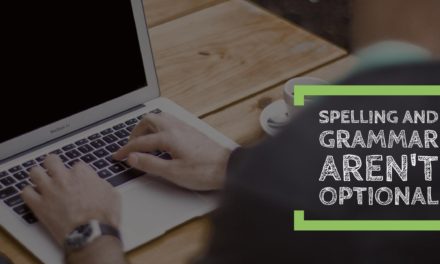If you work in Human Resources (HR) or a related field, it’s sometimes difficult to admit you’re not sure how to develop yourself. Why? Because there’s an assumption that if you work in HR you know the ‘secrets’ of classification, interviewing, and self improvement. But, the truth is that we all have to start somewhere. None of us are born into ‘HR knowing’.That’s why I wanted to offer a series of posts on what skills you need to develop as you progress within the HR world in government.
Not in HR? That’s ok. Many of these skills will generalize. Or, you can check out our prior post on the career crisis of grade jealousy versus grade snobbery.
We all want to believe it’s a clear algorithm of meeting certain competency requirements for a position and applying for the position. But, moving up in one’s career is a jumble of skills, hard work, networking, and good timing. But, there are some solid places to start if you are looking to create an IDP for HR professionals. An IDP to help you in this journey of self improvement and career development as an HR professional who wants to move up from an entry level position. In this post, I will focus on the core skills that distinguish someone at an entry level (GS9) to those looking to move into a mid-level position (GS12) in HR.
Self improvement: Where to start building an IDP for HR professionals
Our jobs in HR often depend on our ability to break down a job into it’s parts and pieces. Our ability to understand different levels of proficiency. But, we seldom look in the mirror. Apply those same skills to understanding our own career paths. Like most, we often start looking at those who are in the positions we want to be in. We try to figure out what that person does, and then attempt to emulate them. There’s some challenges with that approach. Aside from potentially learning bad habits – it’s sometimes difficult to know what specific skills make the difference between being in an entry level position and a mid-level position.
Here’s your self-improvement mirror
I’m offering this as a mirror – because as you read through it, you’ll see that these are the some things you’d tell someone who asks you for advice for moving up.
The first place to start is at the source. Good old Office of Personnel Management (OPM). As you know, OPM is the agency that sets the rules for what it means to be a GS-9 versus a GS-12. So, rather than guessing what your colleague who is at a higher grade is doing – at the risk of the challenges I mentioned above – go to the source.
The second place to start is to remember that there’s 3 areas that anyone will need to be strong in to be effective in their position. These professional development goals need to include: technical, professional, and problem-solving skills. Take a look at our prior post to get a deeper understanding of why these three areas are most critical.
Differentiating between a GS9 and a GS12
What is the differences in skills needed for an HR professional at the GS 9 level versus the GS 12? I started with the Human Resources Management competency model from OPM. I looked only at the general competencies needed (not the specialized). Going back to our 3 professional goal model, these general competencies would fall into the professional and problem-solving areas.
Needed skills in an IDP for HR professionals
There were 14 areas of skills differences between a GS9 and a GS12 according to OPM’s competency model of HRM professionals. Since there’s so many competencies, I’ve organized them into the level of proficiency that is needed to move from a GS9 to a GS12.
These areas of skills differences included:
| Basic to intermediate proficiency | Intermediate to advanced proficiency |
| Change management | Attention to detail |
| Creative thinking | Customer service |
| Influencing/negotiating | Flexibility |
| Legal, government, jurisprudence | Reading |
| Organizational awareness | Stress tolerance |
| Planning and evaluating | |
| Problem solving | |
| Project management | |
| Workforce planning |
Building your IDP for HR professionals
Phew! That’s a lot of competencies to have to work on if you want to move from an entry level HR professional to a mid-level position! In fact, you might say it’s too much. And, you’d be right.
So, where do you start?
I’ve looked ahead into the HR professional career path to look at trends in the proficiency growth in these competencies as you progress in your career. I found that there’s actually 4 competencies that will need to continue to grow as you move towards a GS-15. These 4 competencies are where I’d suggest you start. They include:
- Creative thinking
- Legal, government, jurisprudence
- Customer service
- Reading
Creative thinking
According to OPM, creative thinking is defined as: Uses imagination to develop new insights into situations and applies innovative solutions to problems; designs new methods where established methods and procedures are inapplicable or are unavailable.
Creative thinking is a topic that can easily be found in a class offering. And, that might be a good place to start for self improvement. But, some other ideas might be to practice brainstorming, using mind-maps, and doing some people-watching.
Legal, government, jurisprudence
Legal, government, and jurisprudence is defined by OPM as: Knowledge of laws, legal codes, court procedures, precedents, legal practices and documents, government regulations, executive orders, agency rules, government organization and functions, and the democratic political process.
I generally try to avoid suggesting specific training courses for self improvement. However, this is an area where there just aren’t any alternatives.
One resource for self development, which you may not be aware of, is HR University. It’s an OPM supported resource that offers a fair amount of training at no cost. I’d suggest exploring their options for courses.
One that stood out to me is: Intro to leave, work-life, and workplace flexibilities.
Customer service
OPM defines customer service as: Works with clients and customers (that is, any individuals who use or receive the services or products that your work unit produces, including the general public, individuals who work in the agency, other agencies, or organizations outside the Government) to assess their needs, provide information or assistance, resolve their problems, or satisfy their expectations; knows about available products and services; is committed to providing quality products and services.
First off, I’d recommend a post I feel strongly about. It’s one I wrote that makes the case that good customer service does not mean being a door mat. In short, to start to develop this skill I’d suggest working on asking good questions. It sounds simple – but it’s not. And, asking good questions is core to the ability to understand customer needs without being a doormat.
Check out this TedTalk on The Art of Asking Questions. The speaker makes the intriguing point that asking good questions is a matter of executing on curiosity.
Reading
I have to admit – I couldn’t believe that reading made it into the competency list as something that was important to learn to progress in an HR career. Until I read the OPM definition. OPM defines the competency of reading as: Understands and interprets written material, including technical material, rules, regulations, instructions, reports, charts, graphs, or tables; applies what is learned from written material to specific situations.
That’s when I realized, OPM probably meant reading comprehension. Here’s a pretty thorough article on build reading comprehension skills in adults.
Challenge to take action to create an IDP for HR professionals
- Download the Fedability IDP template for Entry-level to Mid-level HR professionals.
- Complete the template by selecting up to 3 competencies for self improvement. I picked 4 of the 14 competencies that distinguish an entry level HR professional from a mid-level in this post. However, the areas you want/need to develop may be different.
- Identify a couple methods to develop the competencies you picked for self improvement. Not sure how to do it? The template offers a list of methods to develop your skills. Or, you could try googling it. “How to develop my attention to details skills” Read a few ideas that pop up. Or, send me an email and we can talk through a couple ways to build those skills.
- Tell us what you come up with in the comments below!





